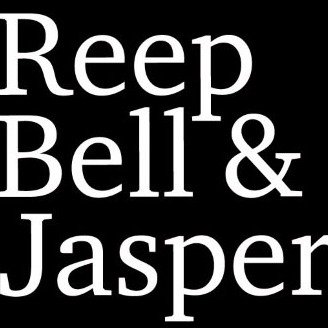Best Land Use & Zoning Lawyers in Montana
Share your needs with us, get contacted by law firms.
Free. Takes 2 min.
Free Guide to Hiring a Real Estate Lawyer
Or refine your search by selecting a city:
List of the best lawyers in Montana, United States
About Land Use & Zoning Law in Montana, United States
Land use and zoning law in Montana refers to the rules and regulations that control how land within the state can be used and developed. These laws determine whether a parcel of land can be used for residential, commercial, agricultural, or industrial purposes. Zoning regulations are usually created and enforced at the local level by cities, counties, or townships. Montana has unique land use priorities due to the state's rural character, natural resources, and strong legal protections for private property. Typically, local governments adopt zoning ordinances and comprehensive plans to guide growth, protect resources, and balance the interests of property owners with the needs of the community.
Why You May Need a Lawyer
There are several situations where individuals, developers, businesses, or organizations may need legal assistance regarding land use and zoning in Montana:
- You want to develop or subdivide property and need to ensure compliance with local zoning laws and planning regulations.
- You have received a notice of a zoning violation from the city or county.
- You wish to challenge or change existing zoning designations, such as applying for a variance, rezoning, or conditional use permit.
- You are involved in land use disputes with neighbors, local authorities, or third parties.
- You are appealing a denied permit or an adverse zoning decision.
- You are concerned about land use impacts from nearby development, such as environmental concerns or changes in neighborhood character.
- You want to understand how local, state, and sometimes federal land use regulations may affect mineral, agricultural, or water rights.
An experienced land use and zoning attorney can help you understand your rights, navigate complex regulations, represent you at public hearings, and protect your property interests.
Local Laws Overview
In Montana, land use and zoning are primarily governed at the county and city level. Local governments adopt zoning ordinances under the authority of Montana state law. Some important aspects include:
- Zoning Classifications: Local ordinances classify land into districts, such as residential, commercial, industrial, and agricultural. Each district has its own permitted and prohibited uses.
- Planning Boards: Most municipalities and counties have planning boards that review and recommend approval or denial of land use applications, including variances, subdivisions, and rezoning requests.
- Comprehensive Plans: These long-term planning documents guide future land use and infrastructure projects. They are policy guides and often influence zoning decisions.
- Variances and Conditional Use Permits: These provide flexibility in cases where strict application of zoning laws creates hardships or unique situations for property owners.
- Public Participation: Montana law emphasizes notice and the opportunity for public input on rezoning, development proposals, and subdivision applications.
- Montana Subdivision and Platting Act: This state act requires a formal review process for land subdivisions, including requirements for infrastructure, environmental review, and public notice.
- Private Property Protections: The Montana Constitution and state laws offer strong protections for private property rights, sometimes impacting how zoning and land use regulations can be enforced.
Frequently Asked Questions
What is zoning?
Zoning is the division of land by local authorities into districts or zones that regulate the types of uses allowed on properties, such as residential, commercial, or agricultural.
How can I find out the zoning designation for my property?
You can contact your local city or county planning department or check their website for current zoning maps. Many counties and cities provide this information online or in person.
Can I challenge or change my property's zoning?
Yes, property owners can usually apply for rezoning, variances, or conditional use permits. The process involves submitting an application, public notice and hearings, and a decision by the appropriate local board or commission.
What should I do if I receive a violation notice?
You should review the notice carefully, understand the alleged violation, and consult with a land use attorney. You may be able to resolve the issue through compliance, appeal, or negotiation with the local authority.
Are there restrictions on agricultural land use in Montana?
Yes, while Montana protects agricultural uses, local zoning laws and subdivision rules may restrict certain non-agricultural development or require permits for uses not typically associated with farming or ranching.
How does the public participate in land use decisions?
Montana law requires public notice and invites public comment for most zoning changes, subdivisions, and variances. Public hearings are usually held before planning boards or city councils.
How are environmental concerns addressed in land use planning?
Local governments and the state consider environmental impacts through required reviews, such as those under the Montana Environmental Policy Act for certain large subdivisions or projects, and may impose conditions to protect water, wildlife, or other resources.
Do tribes and federal agencies have roles in Montana land use?
Yes, tribal lands are generally governed by the respective tribal government's rules. Federal lands are subject to federal regulations. Coordination may occur for projects near these lands or affecting federal interests.
What is the Montana Subdivision and Platting Act?
This is a state law that governs how land can be legally divided (subdivided) in Montana. It requires a multi-step public review process to ensure orderly development, infrastructure adequacy, and resource protection.
Can neighboring property owners object to my development plans?
Yes, neighbors are often notified and given the opportunity to object or comment during public hearings for zoning changes, variances, or large development proposals, and their input can influence the outcome.
Additional Resources
If you need more information on land use and zoning in Montana, the following resources can be helpful:
- Montana Department of Commerce - Community Development Division
- Montana Association of Planners
- Local city or county planning departments
- Montana Environmental Information Center
- Montana Code Annotated (state laws governing land use and zoning)
- Montana State University Extension - Land Use Planning Programs
Next Steps
If you are facing a land use or zoning issue in Montana and need legal advice, consider the following actions:
- Gather all relevant documents such as property records, zoning maps, notices, and correspondence from local officials.
- Contact your local planning or zoning office to clarify your property's current zoning status and any pending actions.
- Consult with a qualified land use and zoning attorney. Look for a professional with experience in local Montana regulations and a clear understanding of state and municipal procedures.
- Attend public hearings if your issue is being reviewed by a planning board or city council. Public participation can influence decisions and protect your interests.
- Keep records of all communications and decisions related to your case.
Taking these steps will help you protect your property rights, comply with the law, and achieve your goals for your land or development project in Montana.
Lawzana helps you find the best lawyers and law firms in Montana through a curated and pre-screened list of qualified legal professionals. Our platform offers rankings and detailed profiles of attorneys and law firms, allowing you to compare based on practice areas, including Land Use & Zoning, experience, and client feedback.
Each profile includes a description of the firm's areas of practice, client reviews, team members and partners, year of establishment, spoken languages, office locations, contact information, social media presence, and any published articles or resources. Most firms on our platform speak English and are experienced in both local and international legal matters.
Get a quote from top-rated law firms in Montana, United States — quickly, securely, and without unnecessary hassle.
Disclaimer:
The information provided on this page is for general informational purposes only and does not constitute legal advice. While we strive to ensure the accuracy and relevance of the content, legal information may change over time, and interpretations of the law can vary. You should always consult with a qualified legal professional for advice specific to your situation.
We disclaim all liability for actions taken or not taken based on the content of this page. If you believe any information is incorrect or outdated, please contact us, and we will review and update it where appropriate.
Browse land use & zoning law firms by city in Montana
Refine your search by selecting a city.














